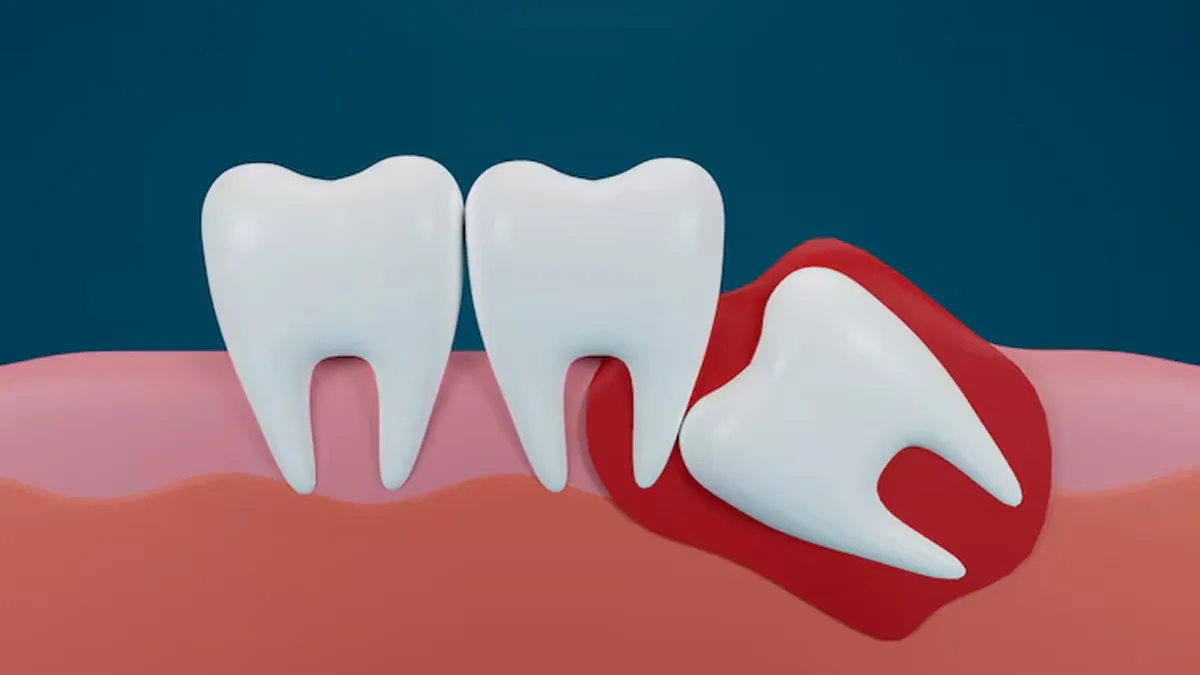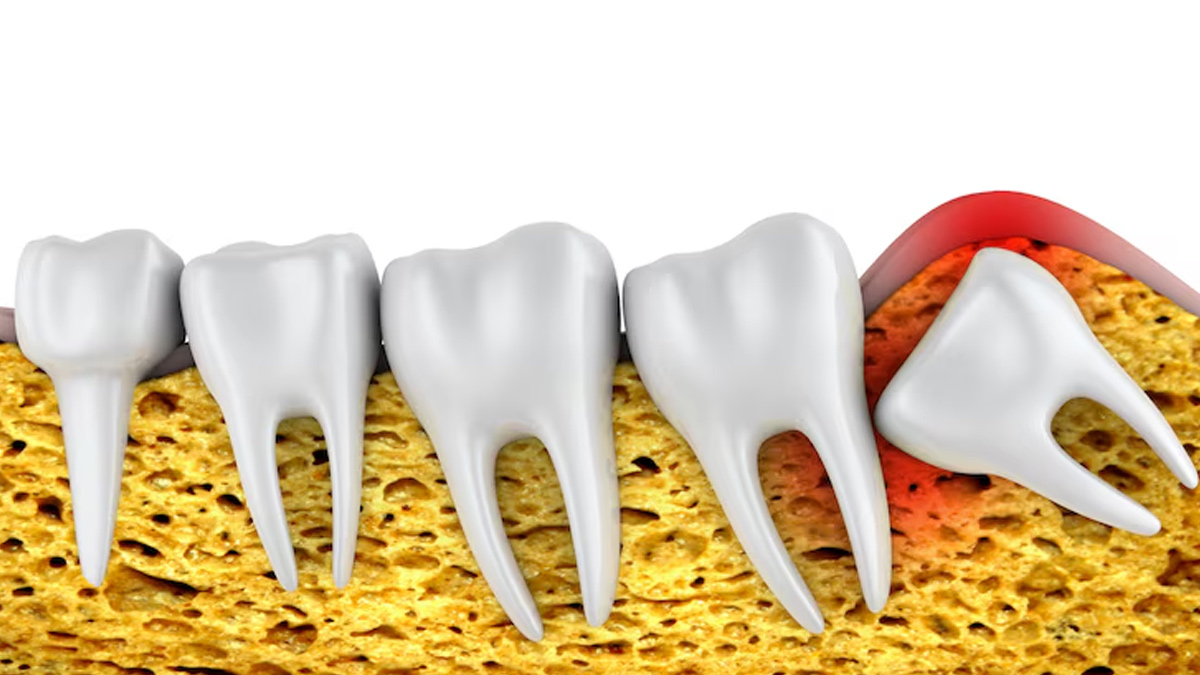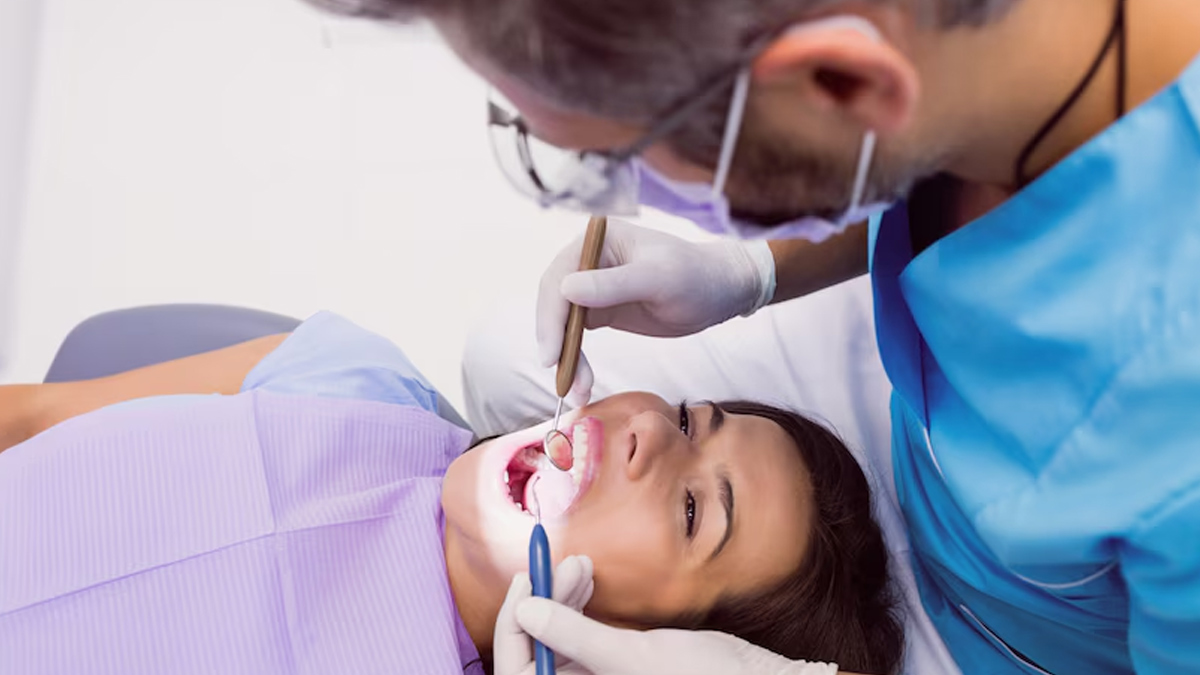
When it comes to wisdom teeth – or third molars – these final sets of teeth usually emerge in the late teens or early twenties. They can, however, arrive with a host of complications, especially when they grow at odd angles, often sideways. Given their location at the back of the mouth and the limited space, sideways growth of wisdom teeth can cause various oral health issues. Let’s explore why this happens, the associated risks, and what solutions exist for those affected.
Table of Content:-
To understand more about wisdom teeth, their sideways growth, and how to tackle them, OnlyMyHealth team interacted with Dr Karishma Jaradi, Head – Dental Surgeon, Dentzz Dental, Mumbai.
Why Wisdom Teeth Grow Sideways
Dr Jaradi explains that one of the primary reasons for wisdom teeth growing sideways is the lack of space in the jaw. By the time these teeth start to erupt, the other molars have already taken their place, often leaving little room for proper positioning. As a result, the wisdom teeth may press against adjacent molars or even the jawbone itself. This causes the teeth to grow sideways or horizontally, a condition known as “impaction.” When a wisdom tooth becomes impacted, it can be partially or entirely stuck below the gum line, further complicating its growth.
Can Wisdom Teeth Straighten Out Over Time?

Unlike other types of teeth, wisdom teeth that grow in a sideways position are unlikely to straighten out on their own. This is primarily because the jaw is fully developed by the time wisdom teeth emerge, leaving little to no space for natural alignment. While some individuals may not experience immediate issues, it is important to remember that impacted wisdom teeth can silently cause problems, even if there is no visible or felt pain initially.
Dr Jaradi stresses the importance of early diagnosis to prevent long-term issues. X-rays can help determine the position of the wisdom teeth and whether they are likely to cause any alignment issues or other oral health complications. Left unchecked, impacted wisdom teeth can press against adjacent molars, potentially leading to misalignment of the rest of the teeth.
Common Complications of Sideways Wisdom Teeth

The sideways growth of wisdom teeth can lead to several issues. One of the most common problems is difficulty in cleaning these teeth due to their awkward position. This can result in an accumulation of bacteria, increasing the risk of infections and inflammation. According to Dr Jaradi, this can progress into more serious issues such as gum disease, tooth decay, or even periodontal disease.
Another common complication involves pressure on nearby teeth, which can cause pain, crowding, or even fractures in severe cases. Impacted wisdom teeth can also lead to the formation of cysts, which may damage the surrounding bone and affect overall jaw health if left untreated.
Also read: 5 Signs That Indicate Your Wisdom Teeth Are Coming In
Diagnosing and Treating Impacted Wisdom Teeth

The best way to address impacted wisdom teeth is through regular dental check-ups, ideally every six months. These appointments, combined with X-rays, allow dentists to monitor the position and development of wisdom teeth and intervene before any complications arise.
“For those with wisdom teeth that are already causing issues, surgical extraction is often recommended. This is a routine procedure typically performed under local anesthesia,”Jaradi said, adding, “Extracting impacted wisdom teeth can relieve pressure on adjacent teeth, prevent misalignment, and eliminate infection risks.”
In cases where teeth have shifted due to the pressure of a sideways-growing wisdom tooth, orthodontic treatment might be required. “Realignment using braces or other orthodontic devices may help restore proper alignment,” Dr Jaradi notes.
Pain Relief and Management
If surgery isn’t immediately necessary or while waiting for the procedure, over-the-counter pain relief medications can temporarily alleviate any discomfort caused by impacted wisdom teeth. However, Dr Jaradi advises against relying on painkillers alone, as they only provide temporary relief and don’t address the root problem.
Conclusion
The sideways growth of wisdom teeth is a common issue that, if left untreated, can lead to a range of oral health complications. According to Dr Karishma Jaradi, early diagnosis and proactive management are key to avoiding these potential issues. Regular dental check-ups, early intervention, and corrective treatments – such as surgical extraction or orthodontics – are vital steps for maintaining both immediate and long-term oral health. For anyone noticing discomfort or misalignment caused by their wisdom teeth, a consultation with a dental professional can provide the guidance and treatment needed to maintain a healthy smile.
Also watch this video
How we keep this article up to date:
We work with experts and keep a close eye on the latest in health and wellness. Whenever there is a new research or helpful information, we update our articles with accurate and useful advice.
Current Version